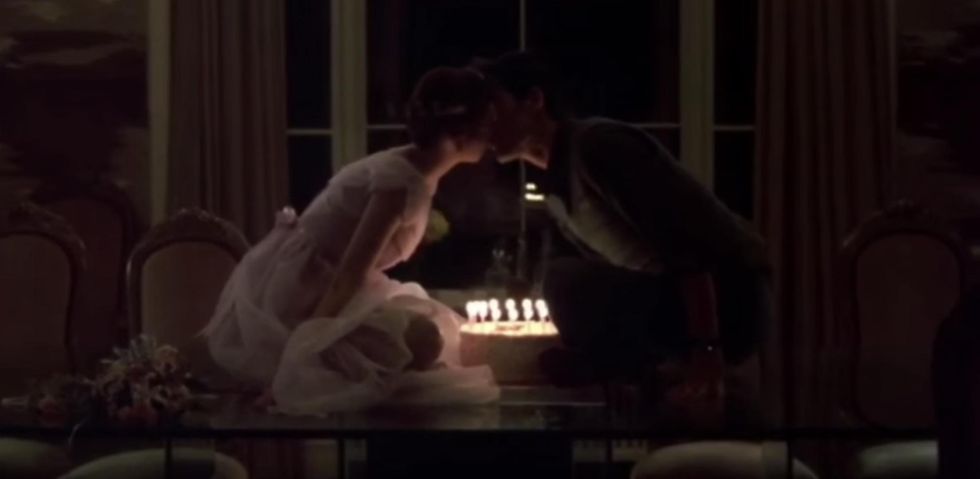
Actress Molly Ringwald describes how problematic the movies are that made her famous. (Image source: YouTube screenshot)

First it was "The Breakfast Club," and now it's "Sixteen Candles." It's apparent that no cult classic '80s film is safe from actress Molly Ringwald's high-handed #MeToo despair.
Ringwald, who starred in 1984's "Sixteen Candles," told NPR that she also considered the movie problematic through the scope of the #MeToo lens.
The film, which was directed by the legendary late filmmaker John Hughes, doesn't ring the same for Ringwald as it once did.
At one point in the film, the movie's male lead says, "I've got [my girlfriend] Caroline in the bedroom right now, passed out cold. I could violate her 10 different ways if I wanted to."
"I do see it differently," Ringwald said of re-watching the classic with her daughter. "I mean, there were parts of that film that bothered me then. Although everybody likes to say that I had, you know, John Hughes' ear and he did listen to me in a lot of ways, I wasn't the filmmaker."
She added, "I think, you know, as everyone says and I do believe is true, that times were different and what was acceptable then is definitely not acceptable now and nor should it have been then, but that's sort of the way that it was."
"I feel very differently about the movies now, and it's a difficult position for me to be in because there's a lot that I like about them. And, of course, I don't want to appear ungrateful to John Hughes, but I do oppose a lot of what is in those movies," Ringwald explained.
Despite having issues with "Sixteen Candles" and "The Breakfast Club," Ringwald said that all is not lost when it comes to the iconic '80s movies of which she was a part.
"There's something that really touches teenagers; especially 'The Breakfast Club,' I feel like sort of gives them permission to talk about their feelings — says that teenagers' feelings really matter," she explained. "And I think that's a really powerful message and for that reason I really love it. 'Pretty in Pink,' I love my character. I think that she's a strong woman, and I'm proud of the choices that she makes."
In April, Ringwald wrote an essay for The New Yorker about different scenes in "The Breakfast Club" in which she said she was “taken aback by the scope of the [film's] ugliness.”
"If attitudes toward female subjugation are systemic, and I believe that they are, it stands to reason that the art we consume and sanction plays some part in reinforcing those same attitudes," she wrote in the April article.